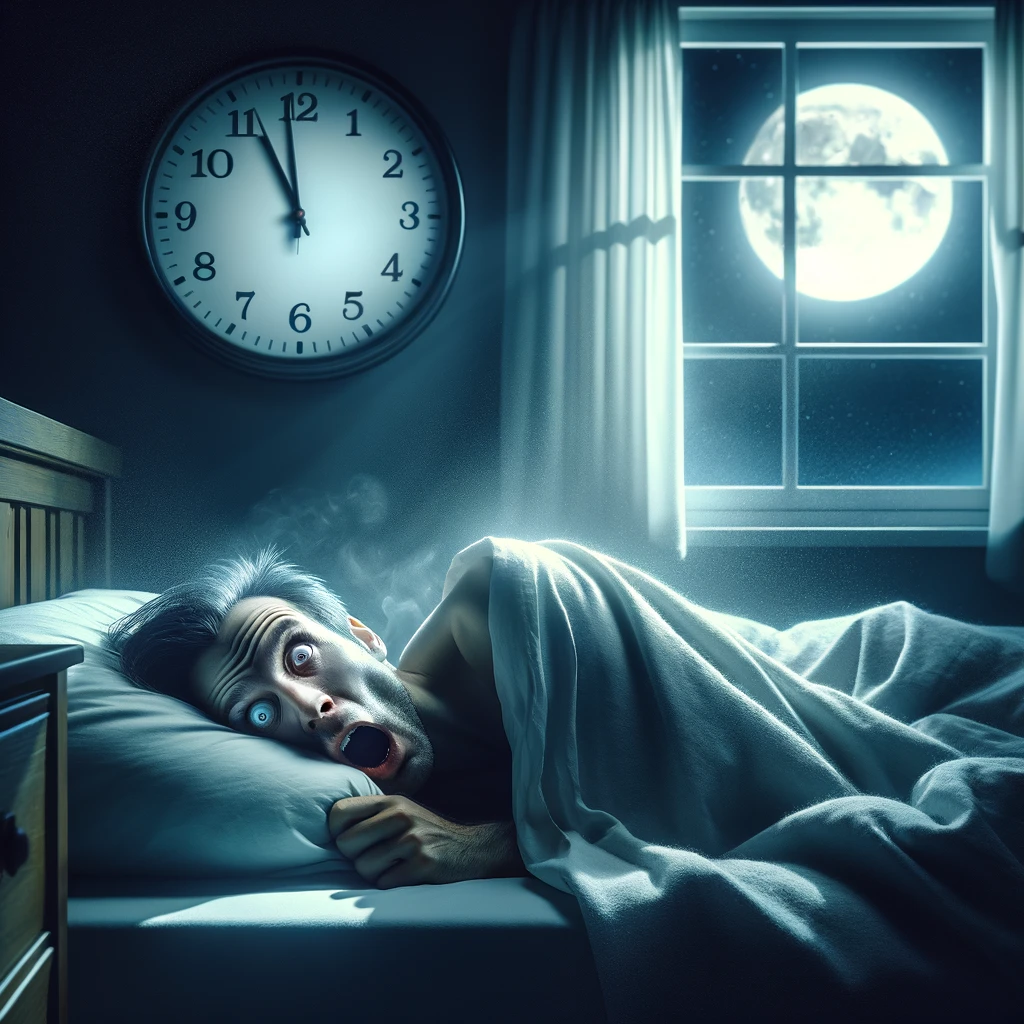Hypnotherapy for sleep disorders is becoming one of the most powerful natural methods for restoring deep, rejuvenating rest—especially for those who have tried everything else with little success. Far beyond relaxation, hypnosis works by calming the nervous system, releasing mental tension, and helping the subconscious mind shift out of the patterns that create insomnia, nighttime anxiety, overthinking, and restless sleep.
For those who struggle with racing thoughts, emotional overwhelm, or subconscious tension at night, hypnotherapy offers a direct, gentle, and highly effective path toward peaceful sleep.
🔑 Table of Contents
- 🌙 Why Hypnotherapy Works for Sleep Disorders
- 🧠 The Hidden Link Between Sleep and Subconscious Stress
- 😴 How Hypnosis Restores Healthy Sleep Patterns
- 🧬 The Science Behind Hypnotic Sleep Work
- ❤️ Emotional & Mental Benefits of Hypnotherapy for Sleep
- 🔥 Hypnosis for Trauma-Linked or Anxiety-Driven Insomnia
- 💪 Physical & Nervous System Benefits
- 🌙 Spiritual & Energetic Dimensions of Sleep Healing
- 🛏️ What a Hypnotherapy Sleep Session Looks Like
- 🔄 How Hypnotherapy Compares to Other Treatments
- 🎧 When to Combine Hypnosis With EFT or Subconscious Rewiring
- ⭐ Success Stories
- ❓ FAQ: Hypnotherapy for Sleep Disorders
- ✅ Summary
- 🧑⚕️ About Dr. Gary Danko
- 📚 Related Reading
🌙 Why Hypnotherapy Works for Sleep Disorders
Hypnotherapy helps the mind shift from hypervigilance into deep calm by working directly with the subconscious—the part of you that controls:
- nighttime fear
- stress cycles
- intrusive thoughts
- physical tension
- conditioned insomnia
- emotional hyperarousal
Unlike sleep aids that force unconsciousness, hypnosis teaches the mind how to sleep naturally again.
This is why it’s so effective for those who feel like their brain “won’t turn off” at night.
🧠 The Hidden Link Between Sleep and Subconscious Stress
Most sleep disorders are rooted in subconscious patterns such as:
- unresolved stress
- emotional overwhelm
- trauma stored in the body
- racing thoughts
- learned associations with sleeplessness
- nighttime anxiety
- hypervigilance
- identity patterns around “I’m a bad sleeper”
Hypnotherapy works by dissolving these patterns safely and gently.
If subconscious identity plays a role in your own patterns, you may enjoy Identity-Based Quitting — The Missing Piece in Becoming a Non-Smoker, which explains how identity-level shifts heal habits of all kinds.
👉 Explore identity-level healing: Identity-Based Quitting
😴 How Hypnosis Restores Healthy Sleep Patterns
During hypnosis, the mind enters a relaxed, highly receptive state where new patterns can form. Here, the hypnotherapist guides the subconscious to:
- release tension
- drop overthinking loops
- soften nighttime fear responses
- create associations with safety and rest
- rewire emotional patterns that disrupt sleep
- form new identity-based beliefs around being a good sleeper
Hypnosis doesn’t force sleep—it teaches the mind to return to its natural rhythms.
🧬 The Science Behind Hypnotic Sleep Work
Research shows hypnotherapy can:
- reduce cortisol
- slow brainwave activity into rest states
- calm the amygdala
- improve sleep depth (slow-wave sleep)
- reduce nighttime awakenings
- recondition anxious thought patterns
This makes hypnosis especially effective for:
- insomnia
- restless sleep
- PTSD-related sleep disruption
- anxiety-driven insomnia
- nighttime panic
- sleep fragmentation
❤️ Emotional & Mental Benefits of Hypnotherapy for Sleep
Sleep and emotional health are deeply intertwined. Hypnosis helps:
- quiet mental chatter
- reduce emotional reactivity
- dissolve overthinking
- increase inner safety
- restore emotional balance
- reduce stress loops
- calm nighttime anxiety
For further insight into how emotional and subconscious patterns override conscious intention, explore Why Willpower Fails—and What Actually Works to Quit Smoking.
👉 See the deeper psychology: Why Willpower Fails & What Works
👉 Schedule a Free Discovery Consultation and discover how I can best help you to sleep better and more restfully.
🔥 Hypnosis for Trauma-Linked or Anxiety-Driven Insomnia
Many people can’t sleep because their nervous system remains in a low-level fight-or-flight state.
Hypnotherapy helps:
- deactivate hypervigilance
- soothe trauma-fueled tension
- calm nighttime anticipatory fears
- recondition emotional memory loops
- rebuild trust in the body
For deeper subconscious work around sleeplessness, see Insomnia: Discover How CBT & Hypnosis Can Help — a guide that explains how subconscious tension, emotional loops, and conditioned patterns disrupt nighttime rest.
👉 Explore the full insomnia guide: Insomnia: Discover How CBT & Hypnosis Can Help
💪 Physical & Nervous System Benefits
Hypnotherapy supports the body by:
- lowering heart rate
- reducing muscular tension
- promoting parasympathetic activation
- improving breathing patterns
- releasing stress chemicals
- improving sleep architecture
People often notice physical calm before the emotional changes even begin.
🌙 Spiritual & Energetic Dimensions of Sleep Healing
Sleep is a spiritual process—a nightly reset of the energy body.
Hypnotherapy enhances this by:
- releasing energetic blocks
- calming the aura
- restoring emotional alignment
- strengthening intuitive clarity
- deepening inner connection
This layer is especially important for spiritually sensitive people.
🛏️ What a Hypnotherapy Sleep Session Looks Like
A typical session includes:
- grounding
- guided relaxation
- subconscious access
- hypnotic suggestions
- integrative visualization
- re-patterning sleep associations
- post-hypnotic anchors for nighttime
Many clients also learn self-hypnosis to reinforce the changes at home.
🔄 How Hypnotherapy Compares to Other Treatments
Sleeping pills:
✔ May help temporarily
✘ Risk dependence
✘ Does not address root causes
✘ Reduces sleep depth
CBT-I:
✔ Evidence-based
✘ Requires effort and weeks of training
Hypnotherapy:
✔ Natural
✔ Non-habit forming
✔ Addresses root emotional patterns
✔ Works faster for many people
✔ Enhances sleep quality, not just duration
This makes hypnotherapy uniquely suited for long-term transformation.
🎧 When to Combine Hypnosis With EFT or Subconscious Rewiring
Hypnosis is powerful alone, but combined with EFT tapping or identity-level rewiring, it becomes transformative.
EFT clears emotional charge.
Hypnosis installs new patterns.
Identity work reshapes the foundation.
If you’re curious whether hypnosis can help you sleep better, reduce nighttime anxiety, or finally break your pattern of restless nights, you’re welcome to schedule a free discovery consultation with me. During this call, we’ll explore your specific sleep challenges and determine whether a personalized hypnosis session is the right next step for you.
⭐ Success Stories
Clients report:
- falling asleep faster
- waking less during the night
- less anxiety
- calmer emotions
- fewer nightmares
- deeper rest
- higher morning energy
Sleep returns—not by force, but by alignment.
❓ FAQ: Hypnotherapy for Sleep Disorders
Guided hypnotherapy that targets subconscious stress patterns is the most effective.
Most clients improve in 3–6 sessions, though it varies.
Many people use hypnosis to reduce or eliminate dependence, with physician guidance.
Yes—gentle, non-invasive, and suitable for adults and children.
Absolutely. It reduces subconscious fear responses and rewires emotional triggers.
✅ Summary
Hypnotherapy for sleep disorders is a natural, effective, and deeply transformational approach.
It works by calming the body, soothing the mind, and rewiring the subconscious patterns that disrupt sleep. Whether your insomnia is rooted in anxiety, trauma, stress, or long-standing habits, hypnosis helps restore the peaceful rest your mind and body crave.
🧑⚕️ About Dr. Gary Danko
Dr. Gary Danko, PhD, specializes in metaphysical psychology, hypnotherapy, trauma healing, and spiritual transformation. His work blends neuroscience, subconscious reprogramming, and holistic mind-body healing to help clients achieve emotional freedom and deep inner peace.


Add your first comment to this post
You must be logged in to post a comment.